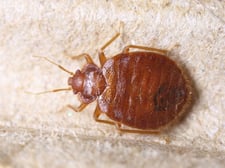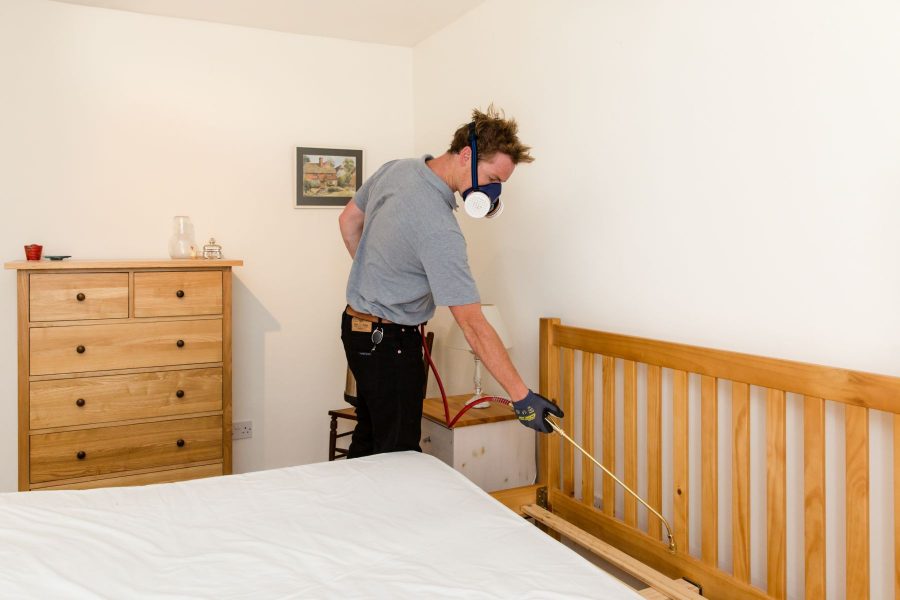Relied On Kings Bug Control Cincinnati OH: Expert Services
Wiki Article
A Break Down of the Different Kinds of Insect Control Solutions
In the world of parasite control, a plethora of approaches exist to battle the visibility and resolve of undesirable animals. As we browse with the diverse landscape of pest control solutions, understanding the intricacies of each approach comes to be extremely important in figuring out the most efficient program of action.Chemical Pesticides
Chemical pesticides are commonly made use of in bug control to properly eliminate a wide variety of bugs and other bugs. These chemicals work by targeting the nerve system of the pests, disrupting their regular features, and ultimately causing their demise. The use of chemical pesticides has been a staple in the bug control market for years as a result of their effectiveness and quick outcomes.
Nonetheless, it is important to utilize chemical pesticides with caution because of their prospective dangerous results on the setting and non-target varieties. Improper application or overuse of these pesticides can lead to pollution, harm to advantageous bugs, and resistance advancement in insect populations. For that reason, it is important to comply with security guidelines and policies when using chemical pesticides for insect control.
Biological Control Techniques
Considering the potential ecological impacts and threats related to chemical pesticides, biological control techniques provide an even more sustainable strategy to handling pest populaces. Biological control includes using all-natural enemies, such as killers, parasites, and microorganisms, to suppress bug populaces. This technique is usually much more targeted, influencing only the certain pest types while decreasing harm to helpful insects, people, and the setting.

One advantage of organic control is its long-term effectiveness. Once developed, natural enemies can aid control pest populaces continually without the demand for repeated applications of pesticides. In addition, organic control is usually extra economical and can assist lower chemical resistance in insect populations with time. On the whole, biological control methods supply a lasting and eco-friendly option to pest management.

Mechanical Parasite Control
Mechanical insect control entails the physical adjustment or elimination of pests to handle their populaces efficiently. This approach is often employed in combination with various other insect control approaches for detailed pest administration. One usual example of mechanical parasite control is making use of catches to capture insects or rodents. These traps can be set up in calculated areas where parasites are known to dwell, helping to reduce their numbers.
An additional mechanical strategy is using obstacles such as fencings, screens, or nets to block insects from entering specific locations. By literally stopping insects from accessing a location, the likelihood of infestations or damages can be significantly decreased. In addition, hand-operated techniques like handpicking insects off plants or frameworks can be reliable for smaller-scale invasions.
While mechanical parasite control approaches can be labor-intensive, they provide a non-chemical choice that can be you can try these out sustainable and environmentally pleasant. By targeting bugs directly, mechanical control strategies can assist keep parasite populations in check without counting on chemicals.
Natural Solutions
Utilizing natural treatments for parasite control offers a environment-friendly and lasting technique to taking care of pest populations without resorting to chemical treatments. All-natural solutions entail making use of substances derived from plants, minerals, or other naturally happening sources to prevent or remove parasites.In addition, essential oils such as tea tree oil or neem oil have insecticidal residential properties that can properly regulate parasites while being secure for the setting. An additional all-natural solution is presenting helpful pests like ladybugs or hoping mantises to your garden to victimize dangerous free exterminator bugs. By integrating these natural services into pest management strategies, people can lower their dependence on artificial chemicals and promote a healthier, more well balanced ecological community.
Integrated Parasite Administration
Integrated Parasite Monitoring (IPM) is a detailed technique that integrates various approaches to properly manage pest populations while minimizing threats to human health and wellness and the environment. IPM includes the integration of numerous bug control methods such as organic control, environment manipulation, alteration of cultural practices, and making use of resistant plant ranges. By utilizing a mix of these techniques, IPM intends read to decrease dependence on chemical pesticides, which can have unfavorable impacts on ecosystems and human health and wellness.One key facet of IPM is the emphasis on avoidance. By executing actions to stop pest problems before they happen, such as maintaining appropriate hygiene and sealing access points, the requirement for responsive insect control actions is reduced. Surveillance and regular assessments play a vital duty in IPM, enabling for very early detection of insect concerns and prompt intervention.
Verdict
In conclusion, the different kinds of pest control options offer a range of choices for properly taking care of parasite problems. Organic control approaches make use of all-natural killers to manage insects. Integrated Insect Management combines multiple approaches for an all natural technique to pest control.Chemical chemicals are typically used in pest control to properly remove a large variety of insects and various other bugs.Mechanical bug control involves the physical adjustment or elimination of parasites to manage their populations effectively (Kings cincinnati pest control companies).Using natural solutions for parasite control provides a sustainable and eco-friendly strategy to handling pest populaces without resorting to chemical interventions.Integrated Bug Management (IPM) is a thorough method that incorporates different approaches to successfully control pest populations while decreasing dangers to human wellness and the environment.In verdict, the various types of parasite control services use a range of choices for properly managing bug infestations
Report this wiki page